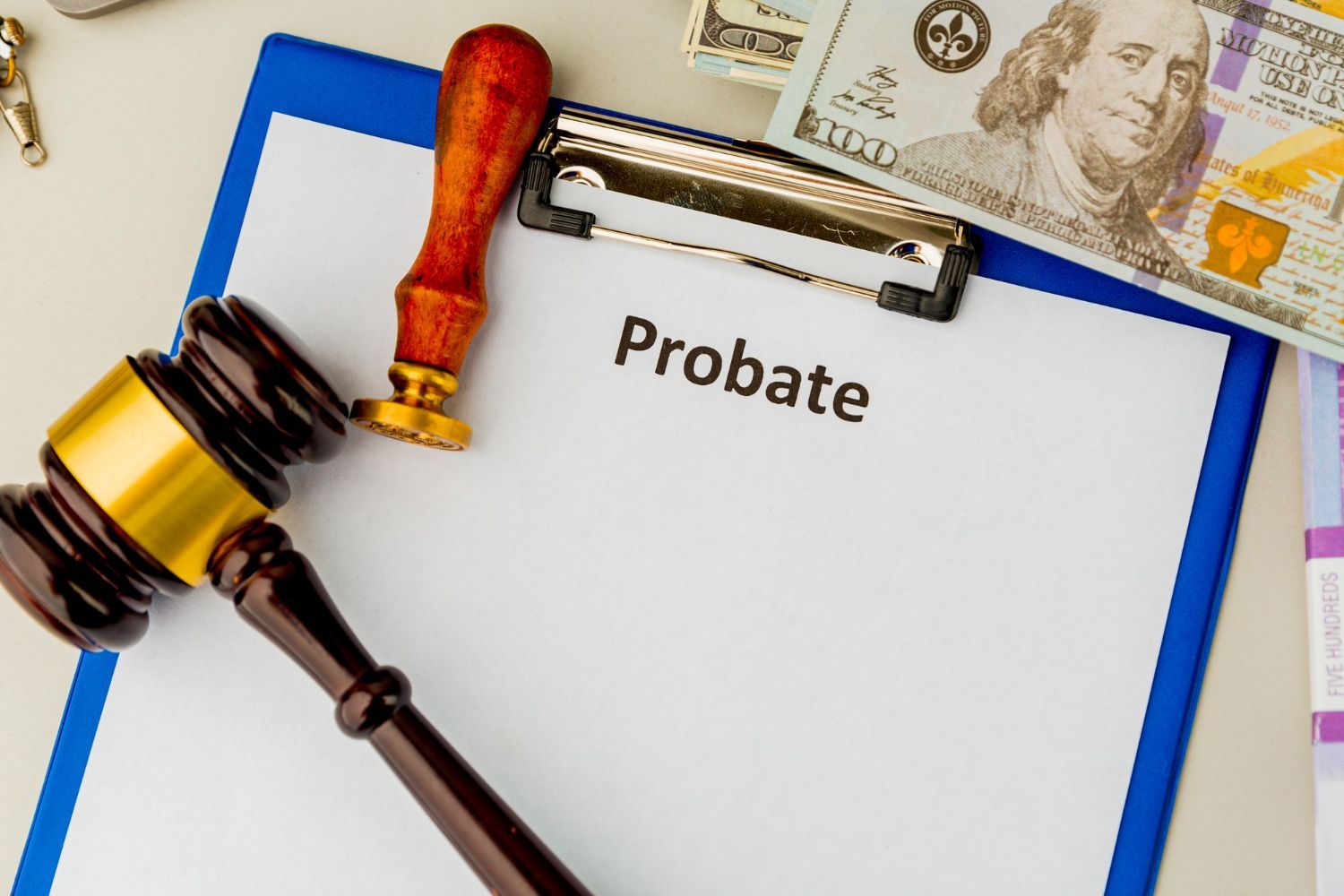Rights and Duties of Personal Representatives in Georgia Probate
Probate can feel like a maze when you're grieving and trying to follow all the steps to settle a loved one’s estate. In Georgia, this legal process involves sorting out a person’s belongings, paying off debts, and distributing what’s left to heirs. But it doesn't happen automatically. Someone has to keep everything on track. That person is called a personal representative.
Understanding what this role includes is key. Personal representatives manage a lot of moving parts during probate, from the paperwork to handling frustrated family members. Their responsibilities aren’t just about checking boxes. They’re about protecting the estate and following the law. Knowing what they can and should do helps prevent delays, disputes, and costly mistakes.
The Role of a Personal Representative
A personal representative is the person appointed to carry out the steps of probate. In Georgia, this could be someone named in a will, usually called an executor, or someone chosen by the probate court when there is no will, known as an administrator. No matter how they get the job, their duties are generally the same.
They’re trusted with making sure the estate is handled properly. That means they do more than just pass out property. They're expected to act in the best interest of the estate and its heirs, which is both a legal and moral responsibility. This duty, called a fiduciary duty, means they have to be careful, honest, and fair. Mismanaging the estate could land them in legal trouble.
Here’s how executors and administrators compare:
- An executor is named in someone's will to handle their estate
- An administrator is appointed by the court when there’s no will or no named executor
- Both must be approved by a probate court before they can start their duties
- Both are responsible for following Georgia probate laws and court instructions
Being a personal representative isn’t about doing whatever feels right. It’s about following the rules while looking out for others' interests. Often, that includes sorting through financial accounts, notifying creditors, and dealing with family members who may not always agree with each other. The law of McGinn Law supports clarity and fairness in this process, helping guide representatives through the legal steps.
Duties of a Personal Representative
Once appointed, personal representatives have a long list of tasks to manage. They’re responsible for securing assets, notifying interested parties, and making sure everything is done within the timelines set by Georgia law. The process can be broken down into a few major steps:
1. Gather and safeguard assets
This includes things like bank accounts, real estate, personal belongings, and business interests. The representative must create an inventory and protect these items until they’re distributed.
2. Pay off debts and expenses
Creditors must be legally notified. Any valid debts, such as medical bills, taxes, or mortgages, should be paid from the estate before anything goes to heirs.
3. Handle legal paperwork
Regular filings are required with the court. This includes updates on how the estate is being managed and requests for permission to take action, like selling property.
4. Distribute assets to heirs
Once debts and taxes are settled, the remaining items or money are given to the rightful beneficiaries, following the will or state law if there isn’t one.
5. Wrap up the estate
The personal representative files a final accounting with the court and asks to be officially discharged from their role.
These steps can take several months or longer depending on the size of the estate and whether there are disputes, unexpected debts, or hard-to-value property. The task is part project manager, part paperwork handler, and part conflict resolver. It’s a lot to ask of one person, especially during an emotional time, which is why understanding the responsibilities clearly from the beginning makes all the difference.
Rights of a Personal Representative
Georgia law gives personal representatives clear rights so they’re able to do the job properly. These rights are balanced with the duties they must carry out, so they’re not just functioning as errand runners. They hold legal authority to manage and protect the estate.
One of the most important rights is access. A personal representative can look into every corner of the deceased person’s finances. That includes bank statements, investment portfolios, digital currency, and even online account balances. They can collect and manage these assets, but they must keep thorough records along the way.
They also have the right to hire help. Managing a full probate estate isn’t always a one-person job, especially in complex cases. Georgia permits personal representatives to bring in professionals who can assist in legal, financial, or tax matters. That might include:
- Probate attorneys to help file court documents and resolve legal issues
- Accountants to handle complicated financial records or tax filings
- Real estate agents to sell property in compliance with probate rules
Another important right involves compensation. Georgia law allows personal representatives to be paid for the time and effort they put in. This can be helpful if the work stretches out over months or years. The amount is either set by the will or determined by state guidelines if the will doesn’t mention it.
Still, these rights aren't limitless. Everything must be done in the interest of the estate and the heirs. If there’s a dispute over how a representative uses these rights, for example if a family member believes property was mishandled, the probate court may step in.
Challenges Facing Personal Representatives
Even when someone is well-prepared, probate can still come with curveballs. Emotions often run high after a death, and family disagreements can easily take center stage. A personal representative may find themselves in the middle of tension over who gets what, how quickly things are moving, or how assets are being valued.
Here are a few common challenges:
- Disputes among heirs or beneficiaries
- Unclear or outdated wills
- Property that’s hard to appraise or sell
- Missing financial records
- Creditors showing up with surprise claims
These situations can cause delays and stress if they aren’t handled calmly and properly. It's helpful to document every action taken and maintain a clear timeline of the probate steps. Keeping communication open with beneficiaries can also ease conflict, especially if decisions are explained along the way.
If things do take a turn, like serious disagreements or allegations of misconduct, the probate judge may require hearings. In these situations, having professional legal guidance becomes less of an option and more of a necessity. It’s better to seek help before the issue grows than to wait until it becomes a full court battle.
Ensuring a Smooth Probate Process in Georgia
While the job is demanding, a personal representative can make things more manageable by staying organized and following a plan. Georgia’s probate system isn’t unpredictable when you understand the steps and stay ahead of deadlines. Most delays come from skipped details, missed notices, or incomplete filings.
To help keep everything moving:
- Set up a simple system to track documents, deadlines, and expenses
- Don’t guess. Read the will carefully and refer back to it when in doubt
- Keep beneficiaries updated on major actions, especially distributions
- Double-check all notices to creditors and legal filings are submitted on time
- Get professional advice early if challenges arise or if something feels uncertain
Being proactive makes all the difference. Even basic things like locking up vacant property or canceling subscriptions tied to the estate can help avoid drama later. Every task may seem small, but together they protect the integrity of the estate and honor your responsibility to manage it well.
Helping Families Honor the Final Wishes
The road through probate doesn’t have to feel like stumbling through the dark. Understanding both the rights and duties of a personal representative builds the confidence needed to take that first step. It lays the groundwork for fairness, order, and smooth communication at a time when families are already under emotional strain.
Clear legal roles combined with strong planning can prevent mistakes, reduce fights, and keep valuable property protected. Most importantly, it gives loved ones the peace of knowing the decedent’s wishes were respected and carried out the right way. When things run smoothly, everyone involved can focus more on remembering the person who passed and less on the paperwork that followed.
Managing a loved one's estate can feel overwhelming, especially during an emotional time. If you're looking for reliable guidance to help ease the process, McGinn Law can support you every step of the way. Learn how we can assist you with
probate administration in Georgia, from coordinating paperwork to settling disputes with clarity and care.





